David Cox was a hard-working, charismatic young man who served four years in the Marines before returning home to start a new life. Sadly, one cold January morning in ‘94, his plans for the future turned to dust. He left without a trace, only to be discovered months later, murdered in the woods near his home.

David Cox’s murder case drew in plenty of attention, partly because he was one of the ten Marines whose experiences at Guantanamo Bay inspired A Few Good Men. This award-winning film dealt with an ugly hazing and a troubling trial.
Cox had serious issues with the movie and was planning on suing the filmmakers. Could this be related to his murder? 27 years later, we still don’t know.
We’ve collected all of the evidence. Now it’s your turn to be the judge.
His Dad Was a Former Military Man Who Couldn’t Handle His Liquor
David Vernon Cox grew up in Needham, Massachusetts, a quintessential American suburb with broad streets running between homes in neatly arranged neighborhoods. However, the portrait of a home doesn’t necessarily reflect what’s happening behind closed doors. In David’s case, life inside was the exact opposite.
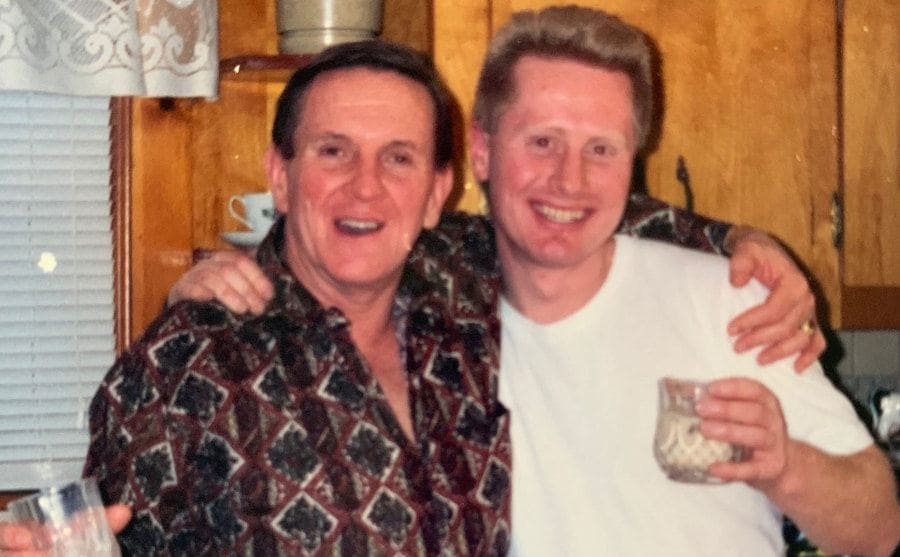
His father was an abusive alcoholic whose former military life echoed in every stern yell and blow. But his physical abuse wasn’t the worst of it. It was the detrimental psychological impact that drove David mad. It isn’t easy walking on eggshells 24/7…
He Chose a Different Path in Life
While David’s high school friends were busy applying to college, the 18-year-old had his heart set on a different route–the Marines. No one close to him was sure why he wanted to enlist because he hadn’t talked much about it before, but the only reasonable answer is that it was his way of getting away from a home life he didn’t enjoy.

In the spring of 1985, David and his friend Jay enlisted in the Marines under “the Buddy Program.” They were sent to basic training at the same time and were stationed in the same place, a Marine Corps Recruit Depot on Parris Island in South Carolina.
He Loved the Discipline of Boot Camp
The boys pushed through 13 challenging weeks of boot camp designed to train them in various aspects. Despite the yells, orders, and strict schedule, David loved it. He loved the discipline, and he loved the order it brought back to his life.
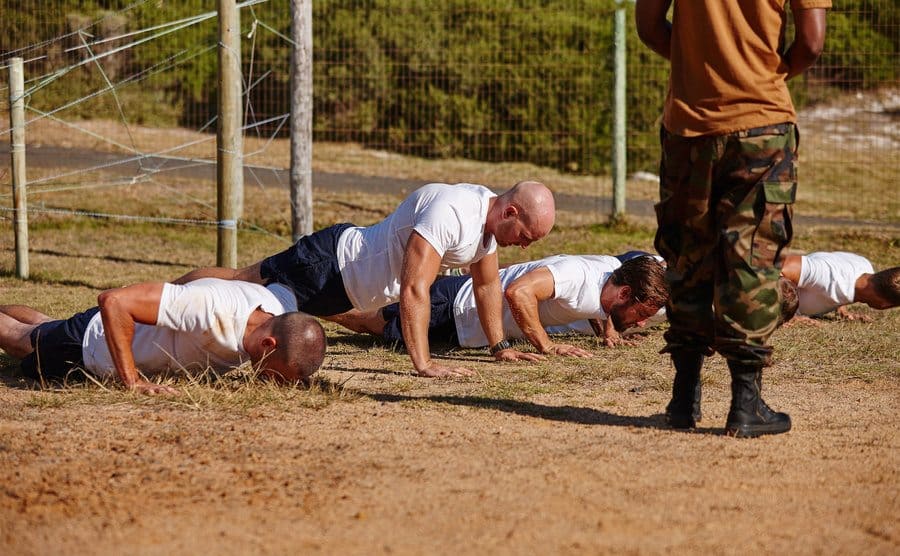
His childhood friend Jay mentioned that both he and David believed that “the things we learned in the Marine corps, you can never learn in college.” By the time the boys finished boot camp, they were in the best shape of their lives.
Tough Conditions at Guantanamo Bay
By 1986, David found himself stationed in Cuba at Guantanamo Bay (Gitmo for short), in a platoon consisting of 30 exceptional soldiers. Gitmo is the oldest overseas U.S. naval base and one that’s attracted a lot of controversy over the years. There is obvious tension between the Cuban government and the U.S. soldiers, with the former wanting them out of their land.

During his time there, David had one of the most demanding positions: manning the perimeter of the base. Guarding was a high-stress position, often involving standing in the sticky heat just a few hundred yards away from Cuban soldiers.
Alvarado’s Complaint Letters
One of David’s fellow soldiers at the base, private class William Alvarado, wasn’t too pleased with Gitmo’s questionable conditions. But instead of keeping quiet and accepting the situation like the rest of the guys, he decided to write a series of complaint letters to the authorities.
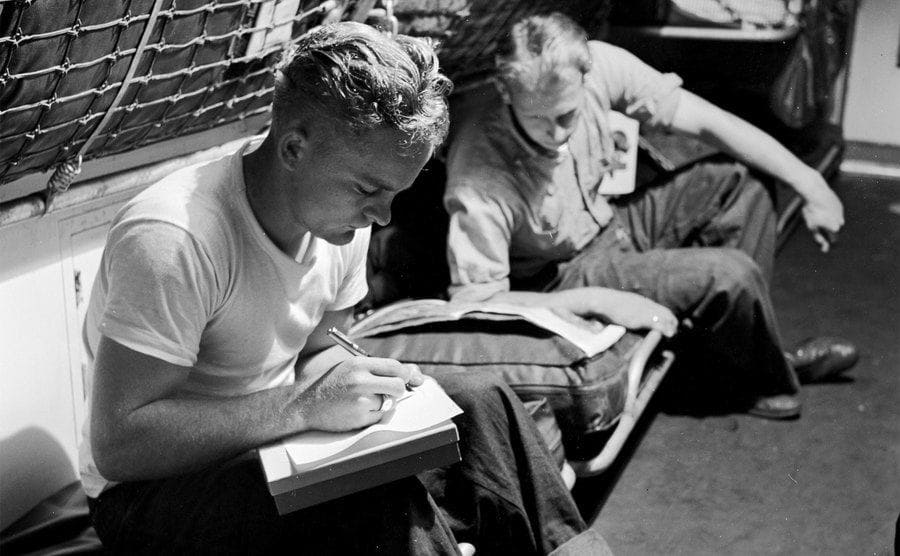
He described Gitmo as a hellish place where commanders treated their soldiers inappropriately and soldiers just randomly fired shots across the fence line into Cuba. As expected, Alvarado’s honest confession didn’t go over well with his commanding officers and fellow marines.
A Deadly Hint
Knowing that the other soldiers might mess with Alvarado, one officer suggested having him transferred off the base. But Colonel Samuel Adams, the man in charge, made the decision to keep him at Gitmo, but not before giving some of his soldiers some shady instructions.
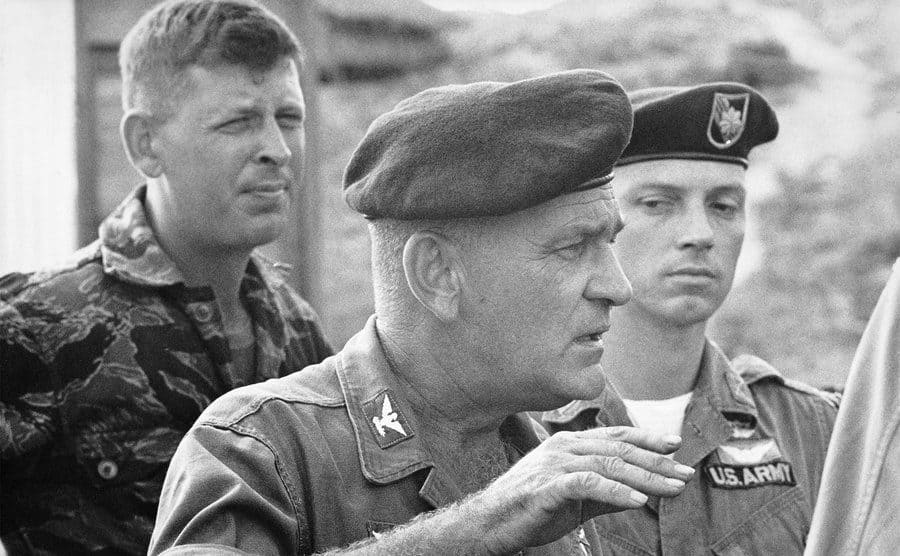
According to David, Adams’s orders filtered down through the chain of command until “our platoon commander pulled us aside and said, ‘Don’t take him up on the roof and throw him off and kill him, but, if he were to fall down the stairs in the middle of the night…oh well.’”
The Ten
Hard-working and dedicated, David stood out from the crowd of soldiers. He was chosen to be a member of a select group of Marines known as “The Ten.” This unofficial group faced physical requirements that were against certain rules, like running five miles in full gear in 110-degree heat.

One evening, as the members of The Ten, were watching a videotaped copy of the film Animal House, they were inspired to take action and decided that a Code Red (a hazing) needed to happen. They believed William Alvarado needed to be straightened out and put in his place.
The Hazing Ritual
At around 1:30 a.m., David and the nine other members from the elite group entered Alvarado’s room. They restrained him, blindfolded him, stuffed a rolled-up pillowcase into his mouth, and dragged him out. The plan was to shave his head and frighten him to death (figuratively, not literally).

But things took a bad turn. While cutting his hair, David realized that Alvarado had stopped breathing and that his face was turning purple. Unknown to the guys, his lungs began to fill with fluid, and he started spitting out blood before he passed out. At that moment, they stopped the hazing ritual and called for help.
Two Choices: Plea Bargain or Trial
Alvarado was rushed to a medical facility on the base and then sent to a hospital in Miami, where he thankfully recovered. But the ten Marines found themselves in a sticky situation. They were appointed lawyers and given a choice: plea bargain or trial.

A plea bargain included an “other than honorable” discharge, releasing them from the Marines and allowing them to go home without legal repercussions. Or they could choose to face trial on charges of attempted murder and conspiracy to commit murder, facing the possibility of 40 years behind bars.
“All I Want Is to Be a Marine”
Seven out of the ten Marines took the plea bargain. But the remaining three (including David Cox) decided to risk it all for justice. David knew they hadn’t attempted to murder him and that the code red itself had been performed due to an implied order from a commanding officer.

He was assigned a lawyer named Don Marcari, who made it very clear to David that the trial might not go his way. He suggested that he take the deal and go home. But David responded: “I have nothing else. All I want is to be a Marine.”
David Hoped His Officers Would Come Clean
In court, David was required to testify that Colonel Adams had given them an implicit order. But young, naïve, and brainwashed, David kept his mouth shut most of the time because he didn’t want to accuse his commanding officers. He hoped they would come out and admit it.

When asked about not wanting to accuse his officers, David later stated, “We were so brainwashed and pro-unit, we didn’t want their asses to burn, they were our mentors. But as time went on, and it was the third or fourth week in the brig, we started realizing what they had done.”
Colonel Adams Denied It
Of course, none of David’s commanding officers admitted to having implied such a thing. Colonel Adams vehemently denied having said anything that could have been misunderstood for a Code Red. It must have been hard on the boys to see their officers lie like that.

Luckily for the three Marines, they managed to defend themselves against the charges. The court-martial lasted a total of four days, after which David was found guilty of simple assault, carrying with it just a 30-day sentence. He remained in the Marines and served for an additional two and a half years before being honorably discharged with the rank of corporal.
Transition Into Civilian Life Was Rough
It took a while for David to get used to life back in his home state of Massachusetts. His childhood friend, Jay Steves, explained: “The kids who had gone to college were moving on to 60k a year jobs, and we [him and David] were back to square one.”

David was a scout sniper and a brave soldier in the Marines, but that had little importance in the civilian world. So, he found himself juggling a few odd jobs, from bartending to pumping gas to hauling trash. He even applied to community college and earned a two-year paralegal degree. But no matter how hard he tried to fit in, he remained a Marine in his heart.
A New Play on Broadway
In 1989, a new play opened on Broadway called A Few Good Men, written by Aaron Sorkin. It followed a trial remarkably similar to the one involving David, except for a few altered details. The play would run for 14 months before the rights were optioned to make it into a film.
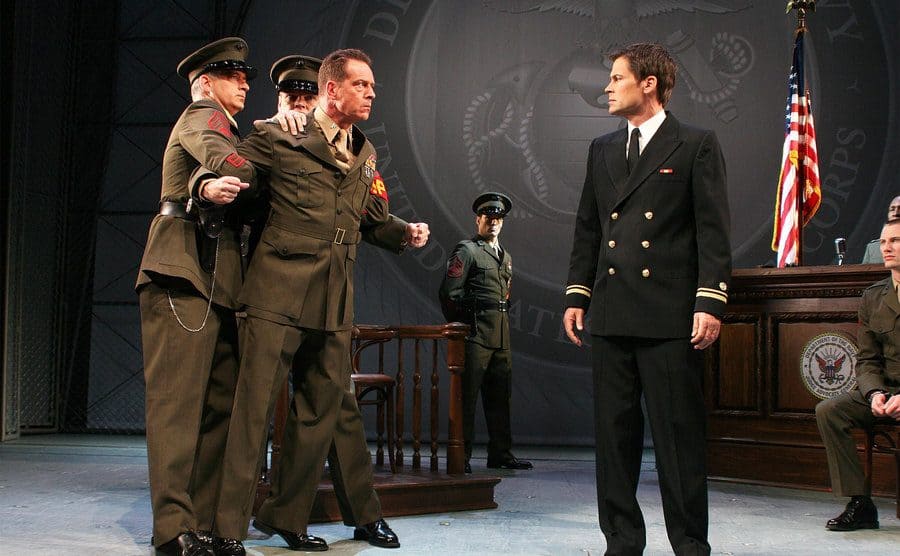
The guys involved in Alvarado’s case could clearly see that Sorkin had had access to the details of the trial and all of the court’s transcripts. As it turns out, Sorkin’s sister represented some of the seven men who had taken the plea bargain, and she told her brother all about the case.
It’s All About the Money
In 1994, a film by the same name came out in cinemas. The Hollywood version of A Few Good Men was a box office success featuring famous stars like Tom Cruise, Jack Nicholson, Demi Moore, and Kevin Pollack. But not everyone enjoyed it.

David and his fellow Marine members felt that their story had been taken and altered so that people could make money from it (which is exactly what happened, if we’re being honest). After watching the film, David stated: “If I hadn’t known the truth, it probably would have been the best movie I had ever seen.”
David’s Issues With the Film
David had two major problems with the film. For one, the film killed the Code Red’s victim when, in reality, Alvarado lived. Two, the ending of the film also misrepresented the truth. The film made it so that the Marines were found guilty of conduct and dishonorably discharged from the corps.

But in real life, they’d been found guilty only for simple assault. David was enraged by the changes made to his story. When asked about it, he explained: “All they had to do was call us. I would have been glad to take a leave of absence to go out there and tell the real story.”
The Former Marines Wanted to Sue
David’s friends from the Marines reached out to him to discuss the idea of a lawsuit against the scriptwriter and filmmakers. They wanted to sue both Castle Rock Entertainment and playwriter Aaron Sorkin. They were willing to do whatever it took to get the truth out.

In addition, David reached out to his former lawyer, Don Marcari, who suggested he write a book about his experience to set the record straight. But writing a few lines about his life wasn’t enough for him. He wanted to be compensated for the invasion of privacy and was willing to go to great lengths to get it.
He Was Waiting on a Call From His New Job
By the time the film came out, David was living with his girlfriend, Elaine Tinsley, and working for UPS. His position there was only part-time, and he was nervously waiting on them to give him a full-time position.

He was supposed to get a call from them informing him whether he would be given a steady contract. So, in addition to his unsettling emotions from watching the film, David was also on edge because his future career plans were somewhat unclear.
The Last Time He Saw His Brother
On the night of January 4th, a day before he died, David’s brother Stephen took him out for drinks. He picked him up, and the two-headed out to Houlihan’s, a bar just off route 9 in Framingham. According to Stephen, David wasn’t his usual self that night. He was noticeably quiet.

Even though they drank beer, watched a basketball game, and talked about the usual stuff, he was a bit reserved. When asked about his mood, David responded he was having some relationship issues, his back was hurting, and he was a bit stressed out by his job at UPS.
At the end of the night, Stephen drove David back home, not knowing that this would be the last time he would ever see him.
A Few Hours Before the Murder
According to his girlfriend Elaine, David came back home that night from the bar and chose to sleep on the couch due to his back pain. The following day, January 5th, she woke and found him lying in the living room. Before she left home for work, she and David had a quick chat.

She said he sounded happy when they spoke because it was the day UPS would call and inform him whether he got the full-time job. Sadly, the young and optimistic couple had no idea that something was about to go terribly wrong in a few short hours.
David Didn’t Pick Up the Phone
Elaine said she called David from the office at around noon, but he didn’t answer. An hour later, she tried again, and this time, she had some good news to tell him. Their answering machine at home allowed them to check the messages remotely by entering a passcode, so she found a message from UPS saying that he had gotten the job!

After multiple unanswered calls, Elaine assumed he had probably just left the house spontaneously to deal with some unfinished business. But when she finished work at 5 p.m., she came home to a bizarre scenario.
A Fishy Scene
There were a few odd things Elaine picked up on. First, David wasn’t at home, yet his truck was parked in the driveway. Second, the keys to his truck were in the ignition. Third, their pet rabbit was hopping around freely, even though they had a rule that if one of them left the house, they would lock him up in the kitchen.

Fishy detail number four was that all the interior doors were left open, and she noticed that some glasses were tipped over. Instantly filled with a sense of terror, Elaine called around to see if anyone knew where he was.
David’s Case Grew Cold
Elaine filed a missing person report on January 6th, and, according to her, it wasn’t taken too seriously. It took them about a week until they actually started looking for him, and even then, the police weren’t really cooperative. David’s family would often hear new details about the case for the first time on the news.

It was amazing just how quickly David’s case grew cold. The police’s search failed to turn up any info, and they had no witnesses, no motives, nothing. Just a bunch of unanswered questions. Like why would he leave the keys in the ignition? Surely, someone had kidnapped him.
A Tragic Discovery
Eighty-eight days would pass before the case took a tragic turn. One April afternoon, in 1994, a man was canoeing near the Charles river near Medfield, a town located nine miles south of Natick, where David had lived. While canoeing, the man noticed something that instantly caught his eye.

He saw a white sneaker sticking out from a pile of branches in the nearby woods. Curious about the abandoned piece, he canoed up the shore to inspect it more closely and came across a horrible finding–human remains.
He Had Been Shot Multiple Times
Due to how much snow had fallen in the previous months, the remains were well preserved, and the police easily identified the corpse as David. They recovered three 9-millimeter shell casings and found his body had been shot several times.
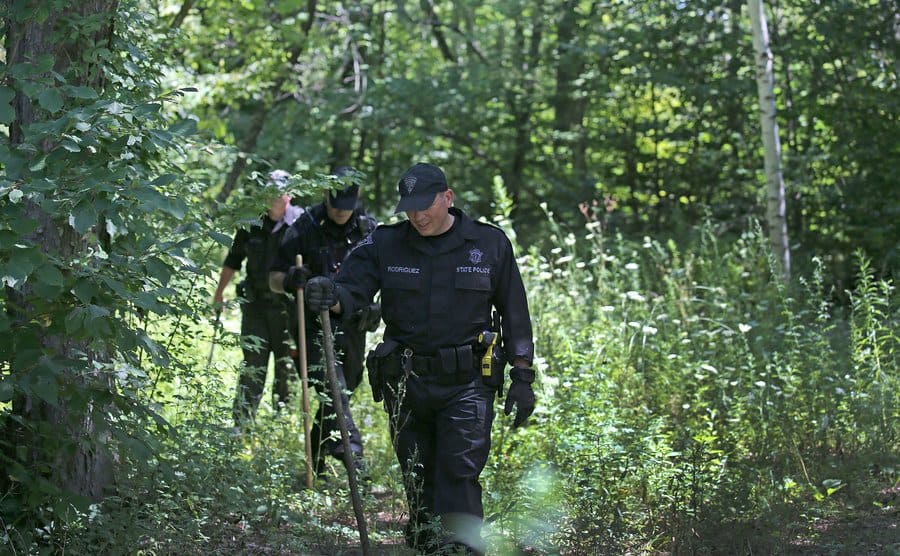
The medical examiner reported that he had been shot once to the back of his head and three times on the left side of his torso. Nearly three months after his disappearance, David’s family finally heard news about their missing loved one.
Investigators Struggled With the Conflicting Evidence
The discovery of David’s body uncovered some really strange details. First, the night before his disappearance, it had snowed, yet he was found more than half a mile into the woods wearing sneakers. It would be expected that he would have at least worn appropriate shoes if here were to walk that far away from the nearest road.
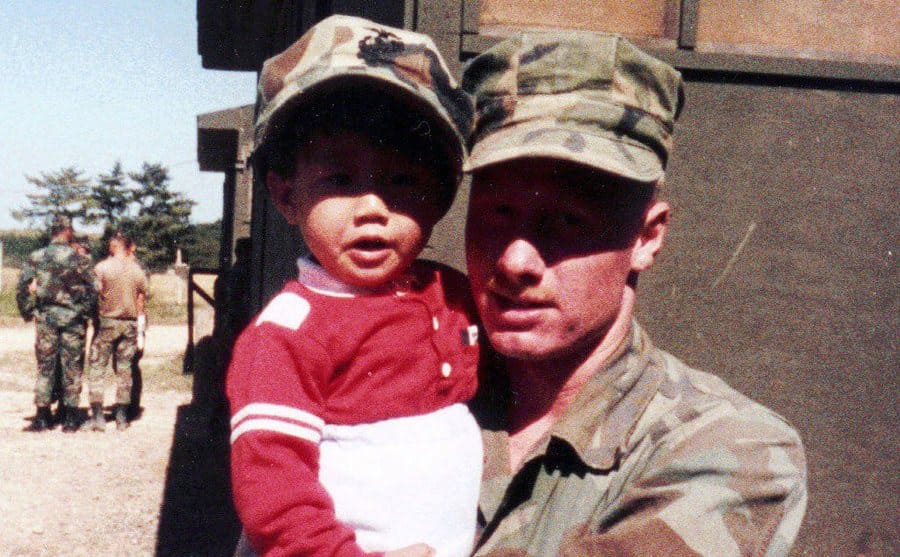
Second, when investigators brought up the possibility of a robbery, it was quickly thrown out the window the second they discovered his wallet was still in his pocket, with credit cards and all in place. Finally, David was wearing his Marine Corps field jacket, and underneath it was his black Marine Corps sniper hoodie, two pieces he practically never wore around town.
Did He Go Willingly or Unwillingly?
On the one hand, the key in the ignition, as well as the opened doors left at home, seem to hint that David was rushed and forced into the woods. But his clothes and the area his body was located in make it difficult to imagine someone pointed a gun at him for so long.

Detective Kevin Shea of the Massachusetts State Police said he believed David went willingly. “He went to the area, and he walked into the woods with this person,” he stated; “I think that if it were somebody who was just holding a gun on him or something like that, they would do it in the first 30 to 40 yards into the woods. David was found almost ¾ of a mile walk into the woods.”
“Never Leave a Brother Behind.”
David’s case never found full closure for 25 years, his family was left to try and solve the puzzle by themselves. Until eventually, in 2019, two Massachusetts law enforcement officers and former Marines, John Fanning and Trooper Yuriy Bukhenik announced their intention to reexamine the case.

Bukhenik explained, “It’s one of those things – never leave a brother behind. I feel like David has been left behind for 25 years.” The two officers stated that they planned to use their military experience and new forensic techniques to hopefully cut through some of the questions.
The Main Theories
In the void left behind by the strange circumstances of David’s death, four theories have surfaced:
1. David’s murder is related to the position he was getting at UPS. According to his brother, David had talked about uncovering a possible theft ring operating at that station. Some believe he may have been killed in order to keep that a secret.
2. David’s murder is connected to his military past and what happened at Gitmo, not only involving Alvarado but also his opinion that the base was run with a bullying mentality.

3. His murder might be connected to the lawsuit and the movie. Some believe he may have been murdered to silence him from speaking up against the film.
4. David’s death may have been connected to someone he knew. It appears he had willingly gone along into the woods.
His Family Wants the Killer to Pay for It
When asked about this absence of justice, David’s sister Christine responded: “David’s life mattered. He was erased. This person erased his life, his future. I want the killer identified. Not to us, to the world. I want everybody to know who did it. I want him to pay for it.”
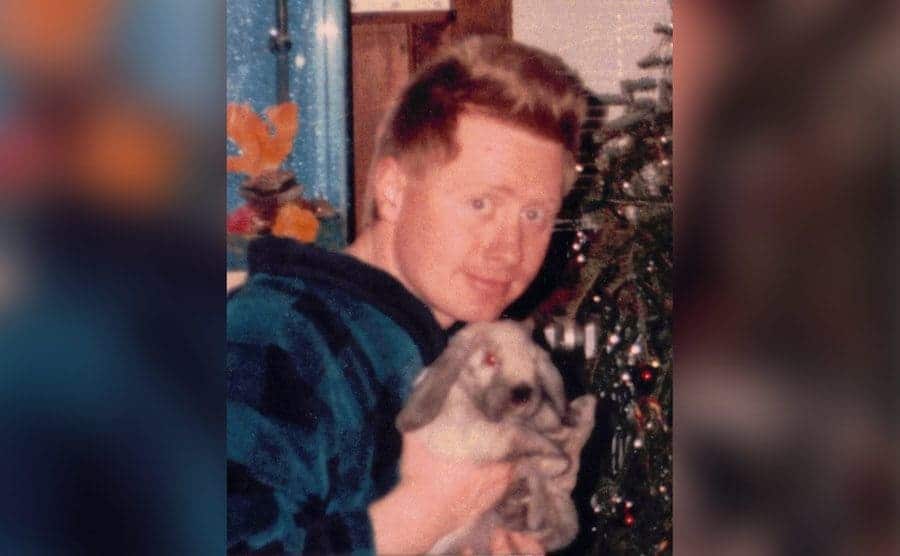
As of 2021, the case is still shrouded in mystery. My personal thoughts are that his death was UPS-related, and the killers made it look like it had to with his military past (by forcing him to put on his Marine Corps field jacket). Honestly, I don’t believe he marched into the woods willingly.
